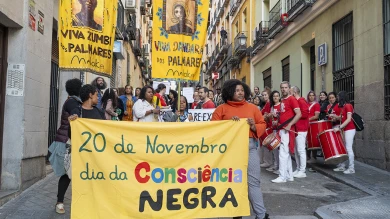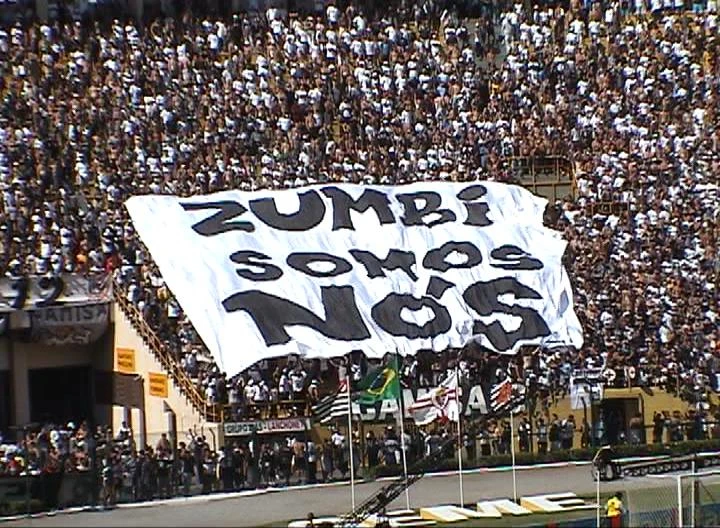
Frente 3 de Fevereiro, Bandeiras (Flags), 2006, action, video
Museo Reina Sofía Collection
Held on 22 Nov 2025
Museo Situado and the Maloka Brazilian Cultural Association come together to offer this artistic, historical and social activity in conjunction with Black Consciousness Day in Brazil, which pays homage to Dandara and Zumbi dos Palmares, universal symbols of Afro-Brazilian resistance and the fight against slavery.
In the activity, dance, poetry and performance become tools of memory and resistance via a programme which surveys the history of samba, from its origins in Bahia to its consolidation in Rio de Janeiro. It features the participation of more than ten Brazilian artists and pays homage to key figures in samba such as Tia Ciata, Clementina de Jesús, Cartola, Dona Ivone Lara, Elza Soares, Martinho da Vila and Alcione.
Further, the event seeks to shine a light on the richness of Afro-Brazilian culture while opening a space of reflection on resistance to racism throughout history and today, as well as inequality and disregard. In the words of philosopher Sueli Carneiro (2000), “the fight for the rights of black women and the community of African descent is inseparable from the rescue of history and the memory of our ancestors”. It is an artistic and vindicatory celebration that invites the whole community to aquilombarse: to come together, celebrate and affirm collective memory, for, as sociologist Florestan Fernandes (1976) affirmed, “the history of peoples of African descent can only be understood through the active resistance to oppression”. Long live Dandara. Long live Zumbi. Long live Afro-Brazilian ancestry.
Organised by
Museo Situado and the Maloka Brazilian Cultural Association
With the support of
The Brazilian Embassy and the Guimarães Rosa Foundation

Accessible activity
Access information
Free personal magnetic induction loop service. This equipment can be requested from the designated points in the Museo. More information
Participants
Asociación Cultural Brasileira Maloka
is an organisation, based in the Lavapiés neighbourhood, which works to disseminate Brazilian culture in Madrid. Over the past twenty-one years, it has organised activities to promote the richness and diversity of Brazilian Afro-Indigenous culture, and to offer a space where artists and communities can share their creations and traditions. Their main initiatives include: Black Consciousness Day, the Pachamama Carnival, the Música Brasileira de Autor Festival (FEMBA) and the Lxs Niñxs Traditional Fiesta.
Alabê
is a percussionist and multi-instrumentalist with a solid professional trajectory developed between Brazil and Spain for more than three decades. Alabê’s talent, versatility and in-depth knowledge of percussion have led to collaborations with salient samba groups, with a style that fuses the rhythmic wealth of Brazilian tradition with contemporary influences.
Jeane Bonfim
is a dancer, percussionist and capoeirista. In Madrid she previously worked as a percussion teacher and contributed to forming the Batucada Feminista da Maloka group. She is currently working on different Afro-Brazilian dance projects, where she researches and interprets the dance genre to rescue ancestry and recover artistic forms rendered invisible over a long period. She is part of the Black Women’s March Steering Committee in Madrid.
Caroline Ferreira
holds a degree in Psychology and has aligned her trajectory towards dance, culture and activism. She trains in Brazilian and Latin ballroom dance and cultivates rhythms such as gafieira, no pé samba and forró, with an understanding of dance as a medium that connects to her roots and celebrates Brazilian identity. She is also the creator of the project Muvuca Brasil, focused on disseminating Brazilian artistic and cultural expression, and is part of the Black Women’s March Steering Committee in Madrid.
Carlos Mankuzo
arrived in Madrid from Pernambuco and soon integrated into Madrid’s music scene, collaborating with different artists. A maracatu teacher, he is an arts researcher by nature and one of the most respected percussion teachers in the Iberian Peninsula, as reflected in his myriad collaborations with bands and ensembles in Spain.
Eduardo Marreta
is a musician with a command not only of cavaquinho and the guitar, but also an array of percussion instruments. He also performs his own compositions. Marreta has participated in different cultural shows in Spain, including in the Teatro Real, and currently performs with Samba y Algo Más in Café Berlín in Madrid, as well as different samba projects and with Roda de Choro de Madrid.
Muzzangue
is a multidisciplinary visual artist, dancer, choreographer and social and cultural anthropologist with a post-graduate degree in the Culture and Thought of Black People and Gender Equality. In 2002, he received the “Best of Brazil in Europe” award from High Profile magazine and has collaborated with renowned national and international artists.
Wellington Nego Tinho
is a singer, composer, guitarist and percussionist. Since his arrival in Madrid, he has played and danced with different ensembles while developing his solo work, which encompasses samba, bossa nova and popular Brazilian music. For many years he has performed on different stages in the Spanish capital, most notably participating in different editions of FITUR, the International Tourism Trade Fair, and with different Spanish television channels during carnival.
Vane O. (Oliveira, Vanessa)
is a deep-voiced and mixed-race-soul singer. Her music fuses Afro and Indigenous roots with contemporary sound that celebrates life and nature. After stints with choral ensembles and the music school from Madrid’s Sierra Norte, she pays homage to the female figure in samba, evoking the voices of Black people and ancestral women and mothers who sing from memory to be heard, recognised and exalted. An activist for racial and gender justice, she is part of the Black Women’s March Steering Committee in Madrid.
Edimundo Santos
is a singer, composer and guitarist. In 2014, he was invited by the Teatro Defondo company to be the musical director on the work La ópera del malandro, by Chico Buarque, performed at Madrid’s Teatro Fernán Gómez. He also participated at FITUR 2024.
Georgina Santos da Silva
is a Brazilian art educator, curator and cultural researcher who lives in Madrid. She also holds a PhD in Education from the Autonomous University of Barcelona. Her work connects art, film and popular culture as tools of mediation and social transformation as she focuses her practice on cultural diversity, the creation of networks and the collective construction of memory. She has created projects such as the Cine de Andada and Cine Caipirinha film societies, and has collaborated with institutions such as Patrimonio Nacional, the Galería Capibaribe and the Museo Nacional de Arte in Bolivia.
Roberta Xavier, Robertiña
grew up around the Beija-Flor de Nilópolis samba school in Rio de Janeiro, the source of her passion for samba. She has lived in Madrid since the age of nineteen, graduating in Labour Relations and Human Resources at the Complutense University of Madrid. She combines her work with dance.

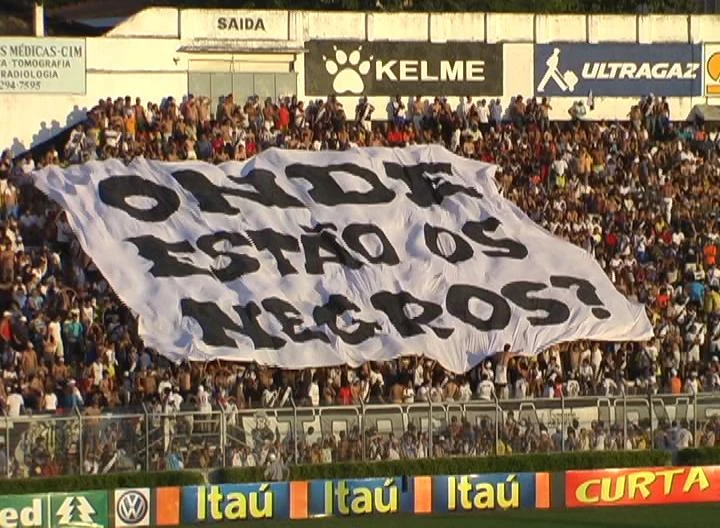
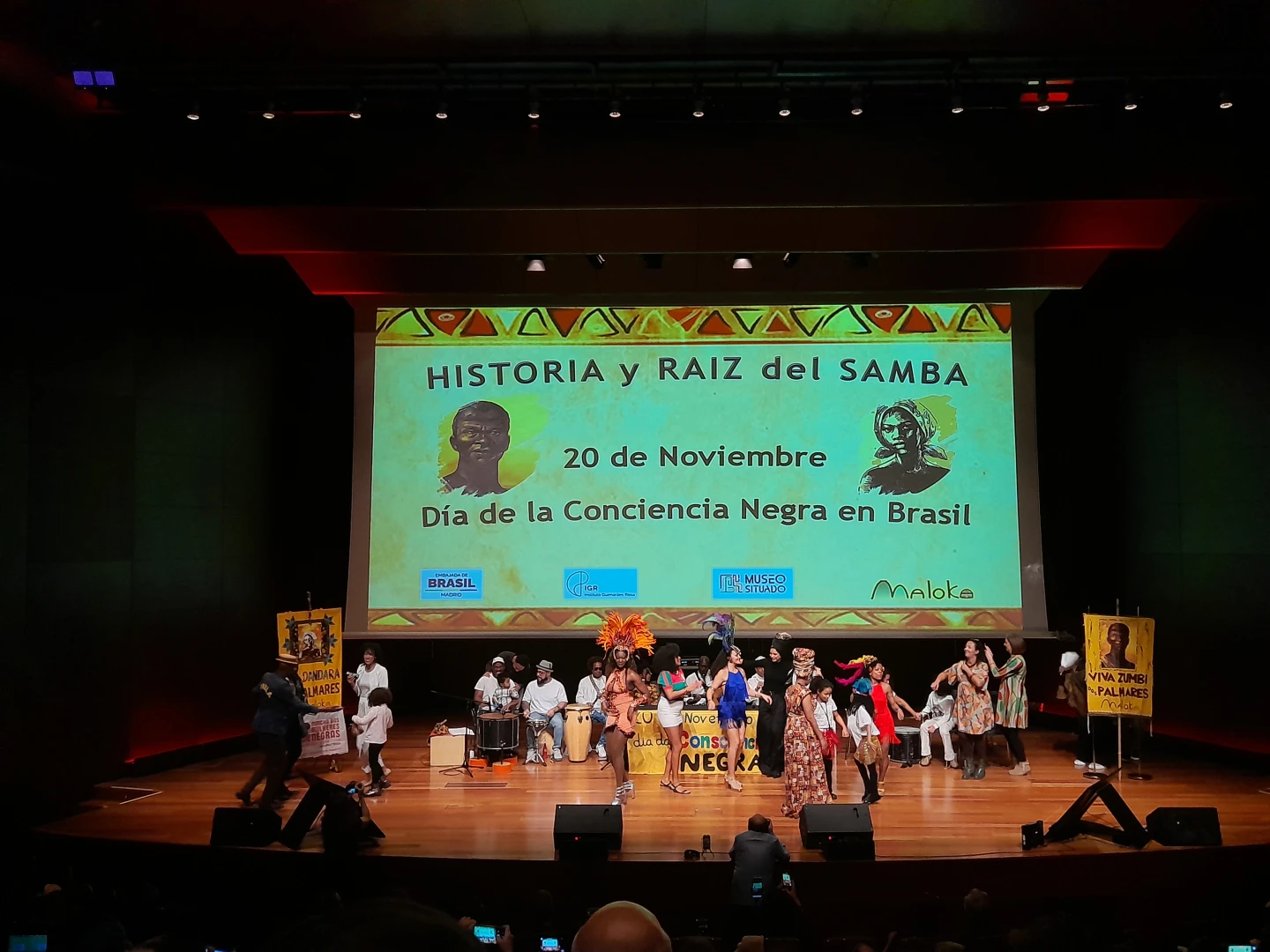
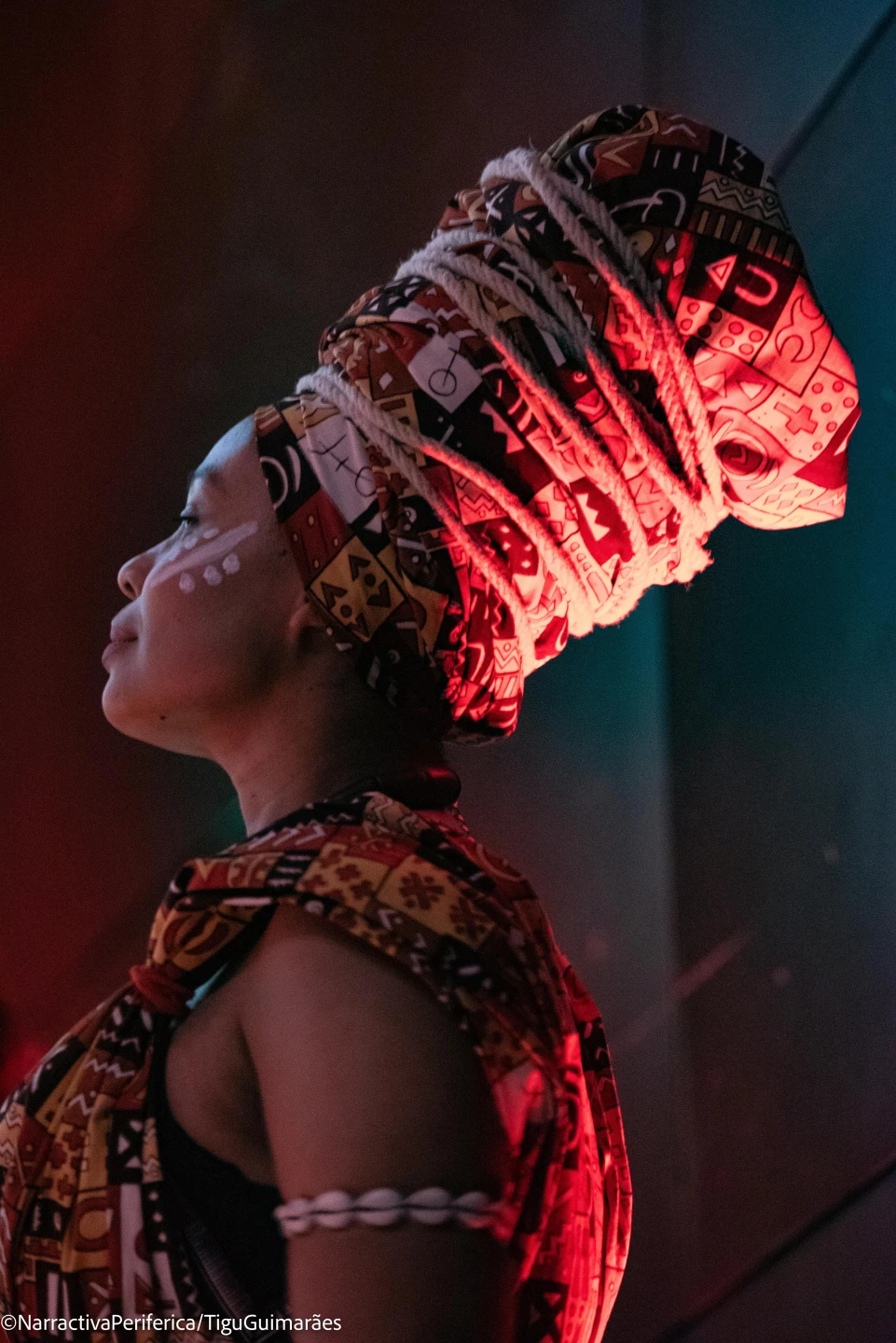
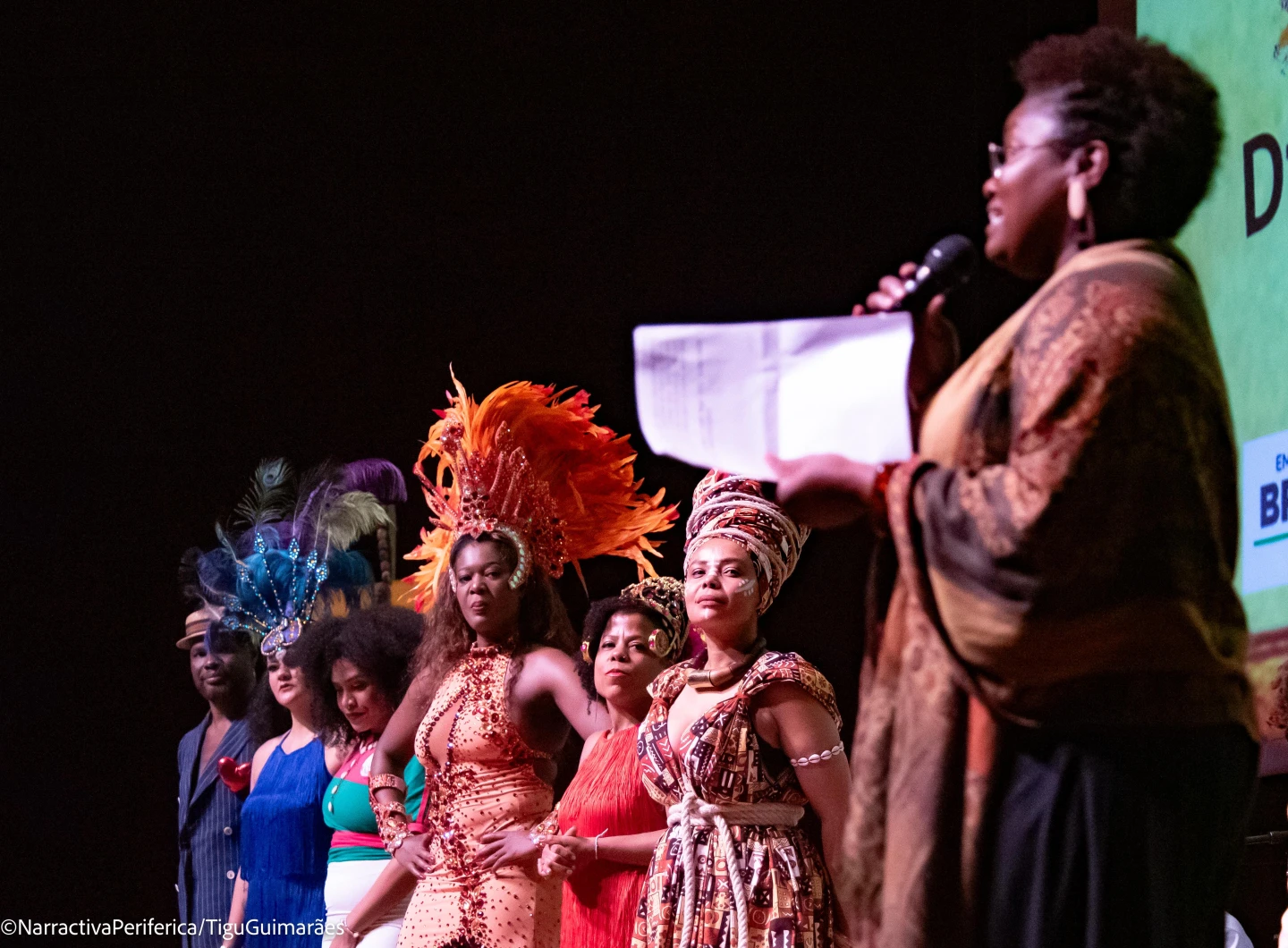
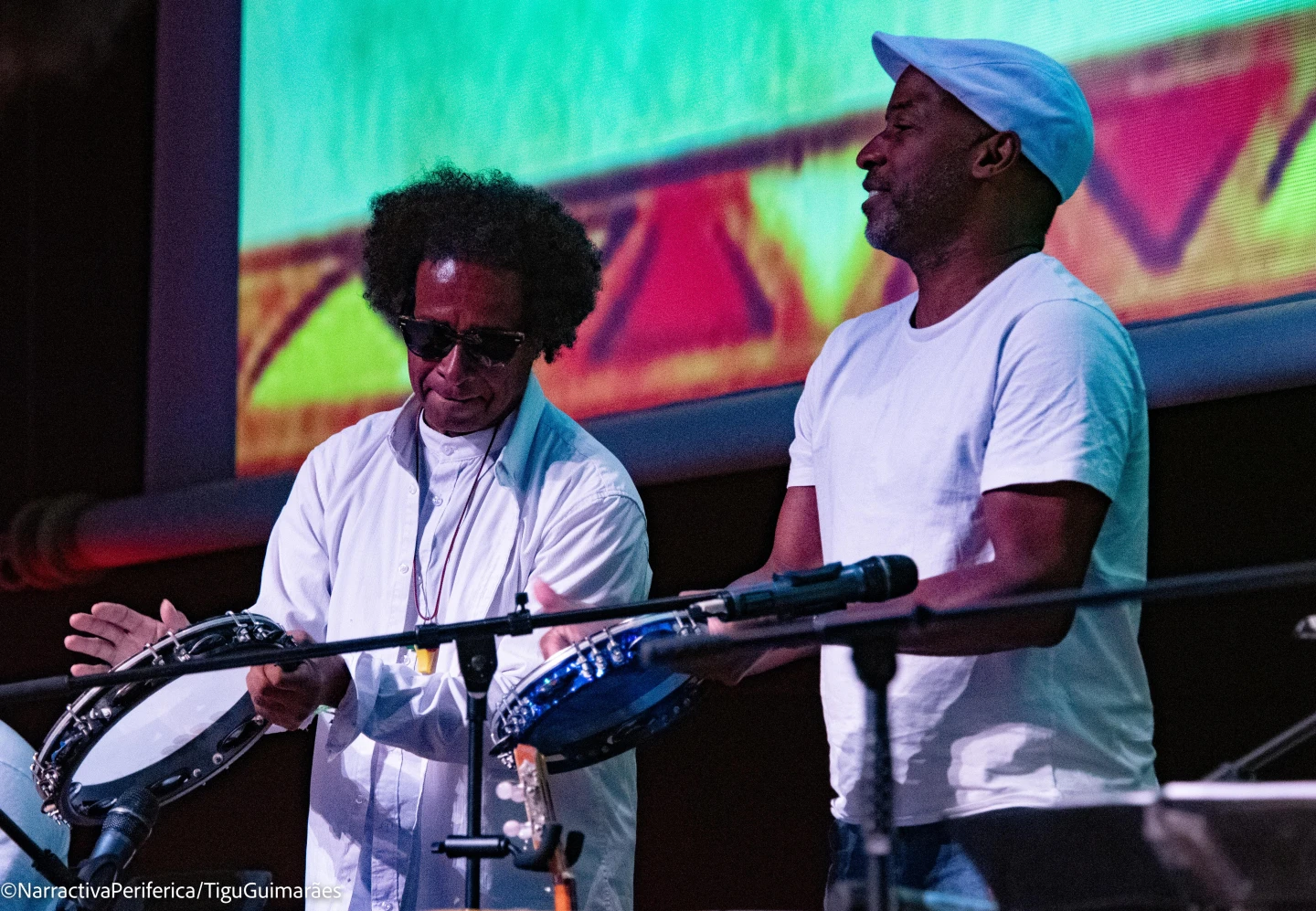
Más actividades
![Tracey Rose, The Black Sun Black Star and Moon [La luna estrella negro y negro sol], 2014.](https://recursos.museoreinasofia.es/styles/small_landscape/public/Obra/AD07091_2.jpg.webp)
On Black Study: Towards a Black Poethics of Contamination
Monday 27, Tuesday 28 and Wednesday 29 of April, 2026 – 16:00 h
The seminar On Black Study: Towards a Black Poethics of Contamination proposes Black Study as a critical and methodological practice that has emerged in and against racial capitalism, colonial modernity and institutional capture. Framed through what the invited researcher and practitioner Ishy Pryce-Parchment terms a Black poethics of contamination, the seminar considers what it might mean to think Blackness (and therefore Black Study) as contagious, diffuse and spreadable matter. To do so, it enacts a constellation of diasporic methodologies and black aesthetic practices that harbor “contamination” -ideas that travel through texts, geographies, bodies and histories- as a method and as a condition.
If Blackness enters Western modernity from the position of the Middle Passage and its afterlives, it also names a condition from which alternative modes of being, knowing and relating are continually forged. From within this errant boundarylessness, Black creative-intellectual practice unfolds as what might be called a history of touches: transmissions, residues and socialities that unsettle the fantasy of pure or self-contained knowledge.
Situated within Black radical aesthetics, Black feminist theory and diasporic poetics, the seminar traces a genealogy of Black Study not as an object of analysis but as methodological propositions that continue to shape contemporary aesthetic and political life. Against mastery as the horizon of study, the group shifts attention from what we know to how we know. It foregrounds creative Black methodological practices—fahima ife’s anindex (via Fred Moten), Katherine McKittrick’s expansive use of the footnote, citation as relational and loving labour, the aesthetics of Black miscellanea, and Christina Sharpe’s practices of annotation—as procedures that disorganise dominant regimes of knowledge. In this sense, Black Study is approached not as a discrete academic field but as a feel for knowing and knowledge: a constellation of insurgent practices—reading, gathering, listening, annotating, refusing, world-making—that operate both within and beyond the university.
The study sessions propose to experiment with form in order to embrace how ‘black people have always used interdisciplinary methodologies to explain, explore, and story the world.’ Through engagements with thinkers and practitioners such as Katherine McKittrick, C.L.R. James, Sylvia Wynter, Christina Sharpe, Fred Moten, Tina Campt, Hilton Als, John Akomfrah, fahima ife and Dionne Brand, we ask: What might it mean to study together, incompletely and without recourse to individuation? How might aesthetic practice function as a poethical intervention in the ongoing work of what Sylvia Wynter calls the practice of doing humanness?

Intergenerationality
Thursday, 9 April 2026 – 5:30pm
This series is organised by equipoMotor, a group of teenagers, young people and older people who have participated in the Museo Reina Sofía’s previous community education projects, and is structured around four themed blocks that pivot on the monstrous.
The third session gazes at film as a place from which to dismantle the idea of one sole history and one sole time. From a decolonial and queer perspective, it explores films which break the straight line of past-present-future, which mix memories, slow progress and leave space for rhythms which customarily make no room for official accounts. Here the images open cracks through which bodies, voices and affects appear, disrupting archive and questioning who narrates, and from where and for whom. The proposal is at once simple and ambitious: use film to imagine other modes of remembering, belonging and projecting futures we have not yet been able to live.

Remedios Zafra
Thursday March 19, 2026 - 19:00 h
The José Luis Brea Chair, dedicated to reflecting on the image and the epistemology of visuality in contemporary culture, opens its program with an inaugural lecture by essayist and thinker Remedios Zafra.
“That the contemporary antifeminist upsurge is constructed as an anti-intellectual drive is no coincidence; the two feed into one another. To advance a reactionary discourse that defends inequality, it is necessary to challenge gender studies and gender-equality policies, but also to devalue the very foundations of knowledge in which these have been most intensely developed over recent decades—while also undermining their institutional support: universities, art and research centers, and academic culture.
Feminism has been deeply linked to the affirmation of the most committed humanist thought. Periods of enlightenment and moments of transition toward more just social forms—sustained by education—have been when feminist demands have emerged most strongly. Awareness and achievements in equality increase when education plays a leading social role; thus, devaluing intellectual work also contributes to harming feminism, and vice versa, insofar as the bond between knowledge and feminism is not only conceptual and historical, but also intimate and political.
Today, antifeminism is used globally as the symbolic adhesive of far-right movements, in parallel with the devaluation of forms of knowledge emerging from the university and from science—mistreated by hoaxes and disinformation on social networks and through the spectacularization of life mediated by screens. These are consequences bound up with the primacy of a scopic value that for some time has been denigrating thought and positioning what is most seen as what is most valuable within the normalized mediation of technology. This inertia coexists with techno-libertarian proclamations that reactivate a patriarchy that uses the resentment of many men as a seductive and cohesive force to preserve and inflame privileges in the new world as techno-scenario.
This lecture will address this epochal context, delving into the synchronicity of these upsurges through an additional parallel between forms of patriarchal domination and techno-labor domination. A parallel in which feminism and intellectual work are both being harmed, while also sending signals that in both lie emancipatory responses to today’s reactionary turns and the neutralization of critique. This consonance would also speak to how the perverse patriarchal basis that turns women into sustainers of their own subordination finds its equivalent in the encouraged self-exploitation of cultural workers; in the legitimation of affective capital and symbolic capital as sufficient forms of payment; in the blurring of boundaries between life and work and in domestic isolation; or in the pressure to please and comply as an extended patriarchal form—today linked to the feigned enthusiasm of precarious workers, but also to technological adulation. In response to possible resistance and intellectual action, patriarchy has associated feminists with a future foretold as unhappy for them, equating “thought and consciousness” with unhappiness—where these have in fact been (and continue to be) levers of autonomy and emancipation.”
— Remedios Zafra

ARCO2045. The Future, for Now
Saturday 7, March 2026 - 9:30pm
The future, its unstable and subjective nature, and its possible scenarios are the conceptual focus of ARCOmadrid 2026. A vision of the future linked to recent memory, a flash of insight into a double-edged sword. This year's edition, as in the previous two, will once again hold its closing party at the Reina Sofia Museum. This time, the star of the show is Carles Congost (Olot, Girona, 1970), one of the artists featured in the new presentation of the Collections recently inaugurated on the 4th floor of the Sabatini Building.
Carles Congost, with his ironic and timeless gaze, is responsible for setting the tone for this imperfect future, with a DJ session accompanied by some of his works in the Cloister on the first floor of the Sabatini Building of the Museo on the night of Saturday 7 March.

27th Contemporary Art Conservation Conference
Wednesday, 4, and Thursday, 5 March 2026
The 27th Contemporary Art Conservation Conference, organised by the Museo Reina Sofía’s Department of Conservation and Restoration, with the sponsorship of the Mapfre Foundation, is held on 4 and 5 March 2026. This international encounter sets out to share and debate experience and research, open new channels of study and reflect on conservation and the professional practice of restorers.
This edition will be held with in-person and online attendance formats, occurring simultaneously, via twenty-minute interventions followed by a five-minute Q&A.
